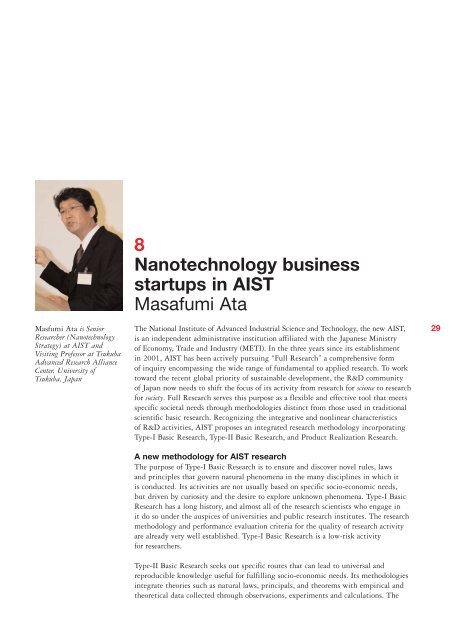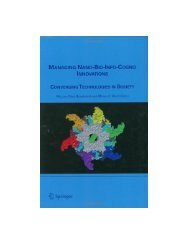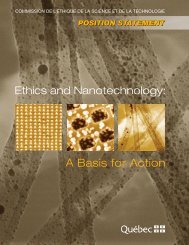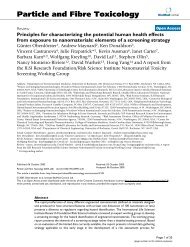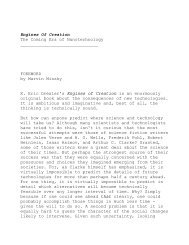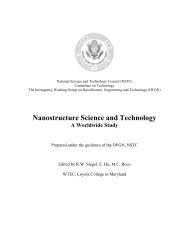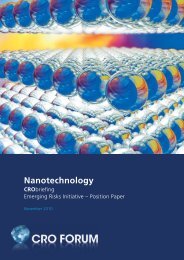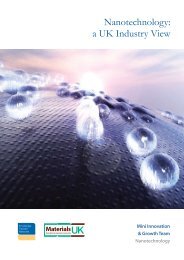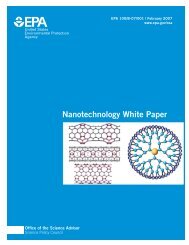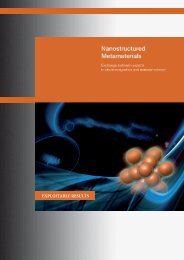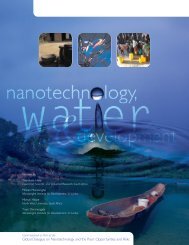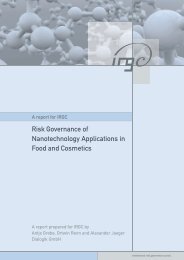Small size - large impact - Nanowerk
Small size - large impact - Nanowerk
Small size - large impact - Nanowerk
Create successful ePaper yourself
Turn your PDF publications into a flip-book with our unique Google optimized e-Paper software.
Masfumi Ata is Senior<br />
Researcher (Nanotechnology<br />
Strategy) at AIST and<br />
Visiting Professor at Tsukuba<br />
Advanced Research Alliance<br />
Center, University of<br />
Tsukuba, Japan<br />
8<br />
Nanotechnology business<br />
startups in AIST<br />
Masafumi Ata<br />
The National Institute of Advanced Industrial Science and Technology, the new AIST,<br />
is an independent administrative institution affiliated with the Japanese Ministry<br />
of Economy, Trade and Industry (METI). In the three years since its establishment<br />
in 2001, AIST has been actively pursuing “Full Research” a comprehensive form<br />
of inquiry encompassing the wide range of fundamental to applied research. To work<br />
toward the recent global priority of sustainable development, the R&D community<br />
of Japan now needs to shift the focus of its activity from research for science to research<br />
for society. Full Research serves this purpose as a flexible and effective tool that meets<br />
specific societal needs through methodologies distinct from those used in traditional<br />
scientific basic research. Recognizing the integrative and nonlinear characteristics<br />
of R&D activities, AIST proposes an integrated research methodology incorporating<br />
Type-I Basic Research, Type-II Basic Research, and Product Realization Research.<br />
A new methodology for AIST research<br />
The purpose of Type-I Basic Research is to ensure and discover novel rules, laws<br />
and principles that govern natural phenomena in the many disciplines in which it<br />
is conducted. Its activities are not usually based on specific socio-economic needs,<br />
but driven by curiosity and the desire to explore unknown phenomena. Type-I Basic<br />
Research has a long history, and almost all of the research scientists who engage in<br />
it do so under the auspices of universities and public research institutes. The research<br />
methodology and performance evaluation criteria for the quality of research activity<br />
are already very well established. Type-I Basic Research is a low-risk activity<br />
for researchers.<br />
Type-II Basic Research seeks out specific routes that can lead to universal and<br />
reproducible knowledge useful for fulfilling socio-economic needs. Its methodologies<br />
integrate theories such as natural laws, principals, and theorems with empirical and<br />
theoretical data collected through observations, experiments and calculations. The<br />
29


